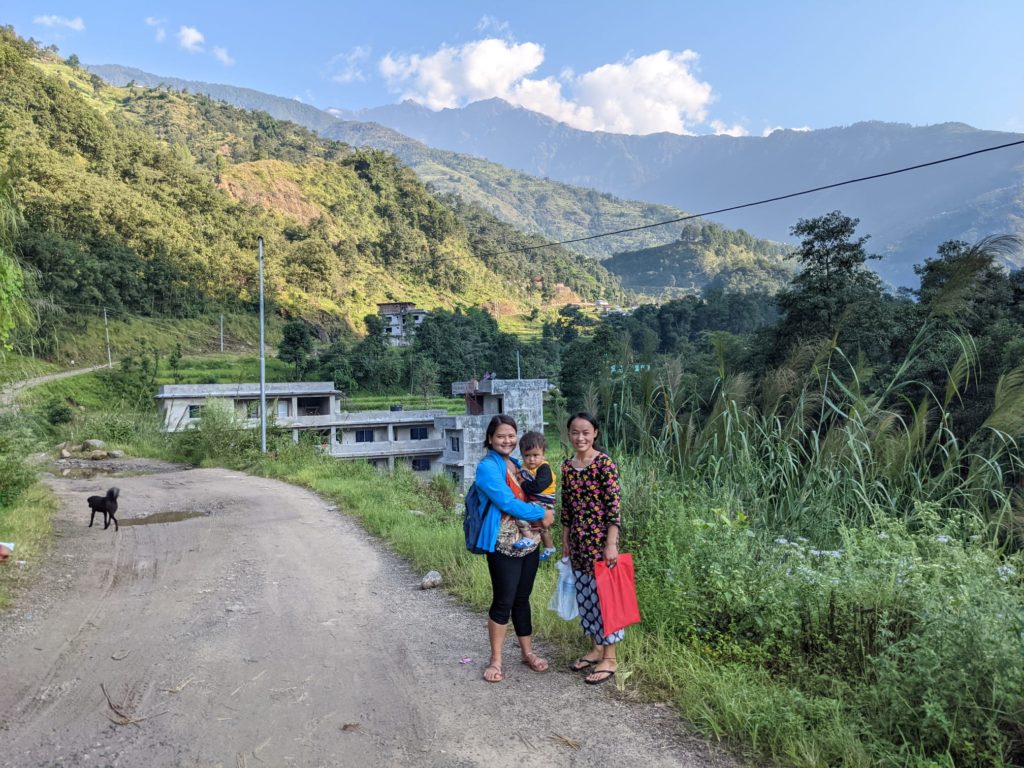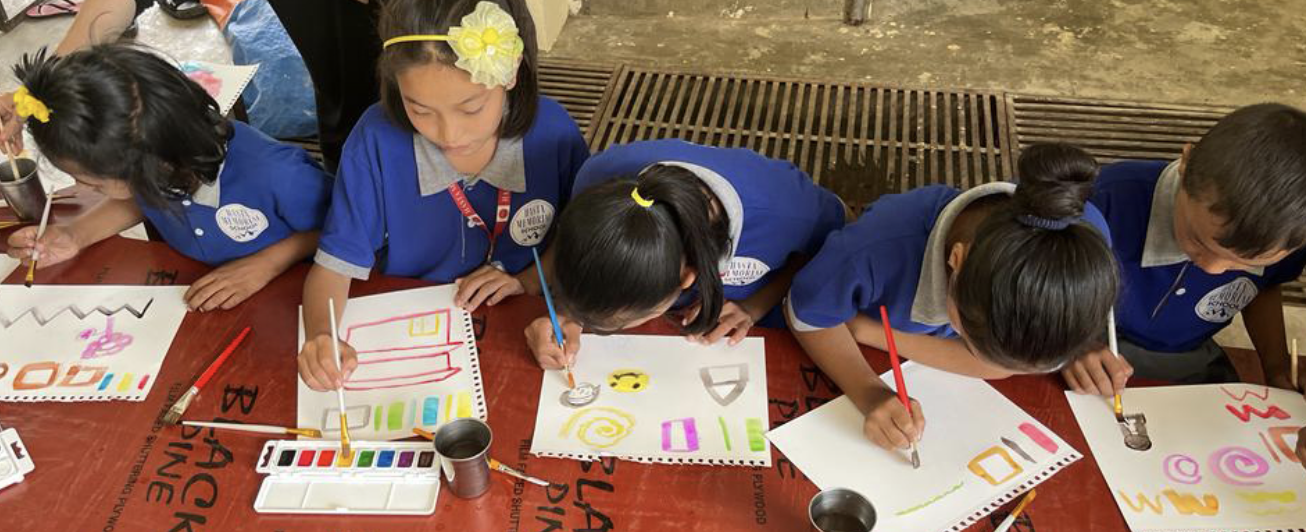Dormitory & Headquarters Construction
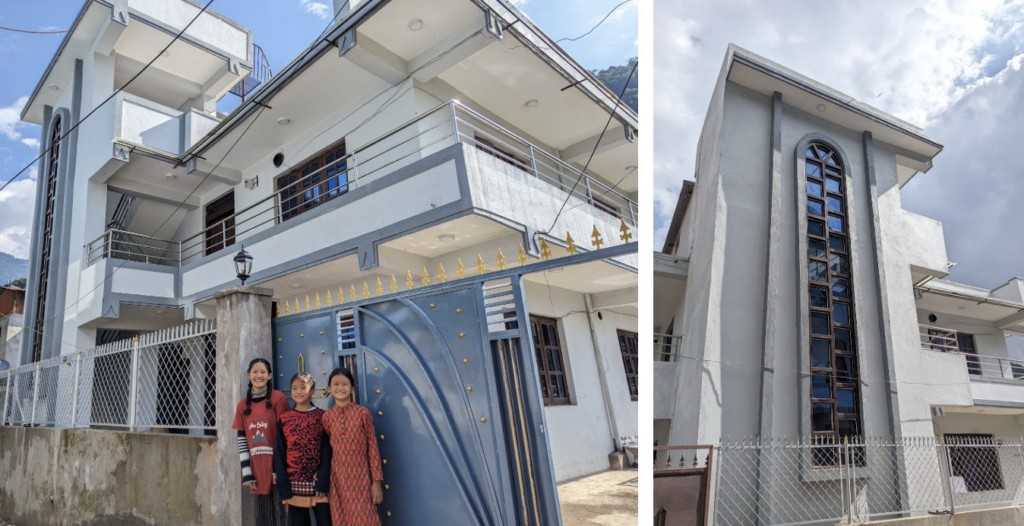
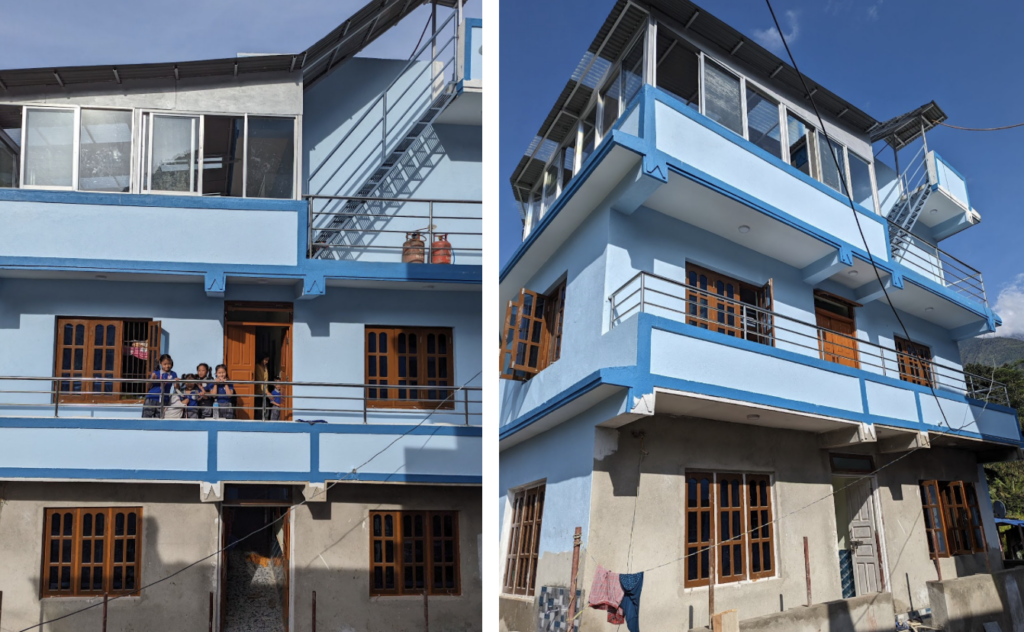
Anjali and Liam have moved into their apartment in the headquarters building. 7 Teachers and staff members who live too far to walk to school are given free housing in our staff apartments on the ground floor. Our hostel girls enjoy nightly zoom classes in the TV room/classroom. Next spring, we look forward to setting up a computer lab in the adjacent room. Later in 2024, we plan to launch vocational training programs in the rooms designated for that purpose. We have recently welcomed our first 6 guests to our guest apartments and we hope you too will come and visit us.
Education
We are now educating 112 students at our school, and supporting the education of 32 others at local government schools and colleges. 100 % of our Hasta School students and 98% of our external students advanced to the next grade when the new school year began in May. 4 passed the rigorous ‘Iron Gate’ 10th grade exams (high school graduation). Two are awaiting their results after retaking the exams (did not pass the first time). We had two girls (over age 18) drop out of school by their own choice.Each year we can add one or two grades to the Hasta School, according to Nepali government policy. In May, we received permission to add Class 2. Since our Febuary report, we have welcomed – new teachers: Anita (music and dance), Sarita (assistant and subject teacher in UKG and LKG) and Kiran (sports teacher), Anju and Mingma has joined our team as driver, handyman, farm supervisor and as a general assistant to Anjali, and Asha as our accountant and substitute teacher.
We provide weekly English and pedagogy classes for our teachers (thanks to Ms. Robin Singer and her team in Eastern MA for these engaging and highly effective classes). We have hosted teacher training experts from Kathmandu, India, Canada, and the US. Our teachers come from the local community or from similar village environments as our kids. Many were not strong in English when we started, but they have made great progress over the past few years. We look forward to providing more training and resources for our teachers in the coming years. They are truly the lifeblood of our school.
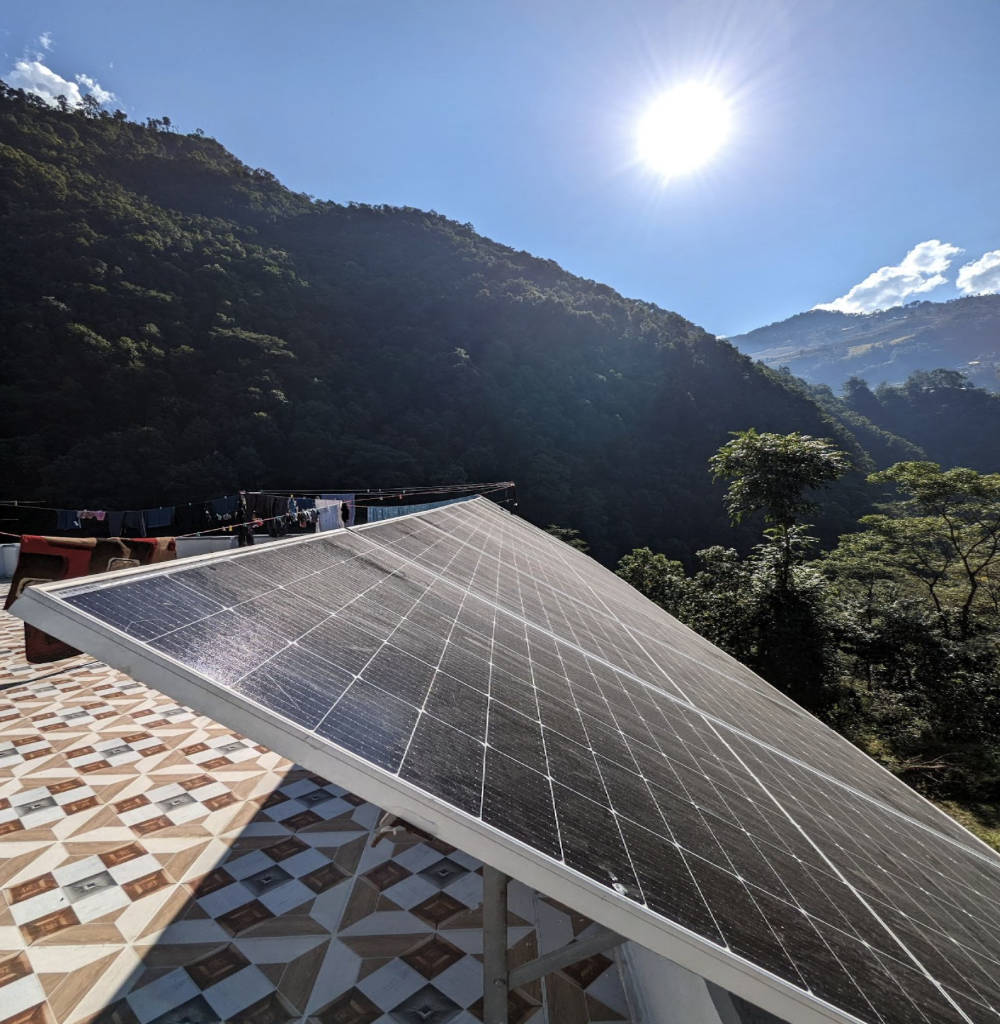
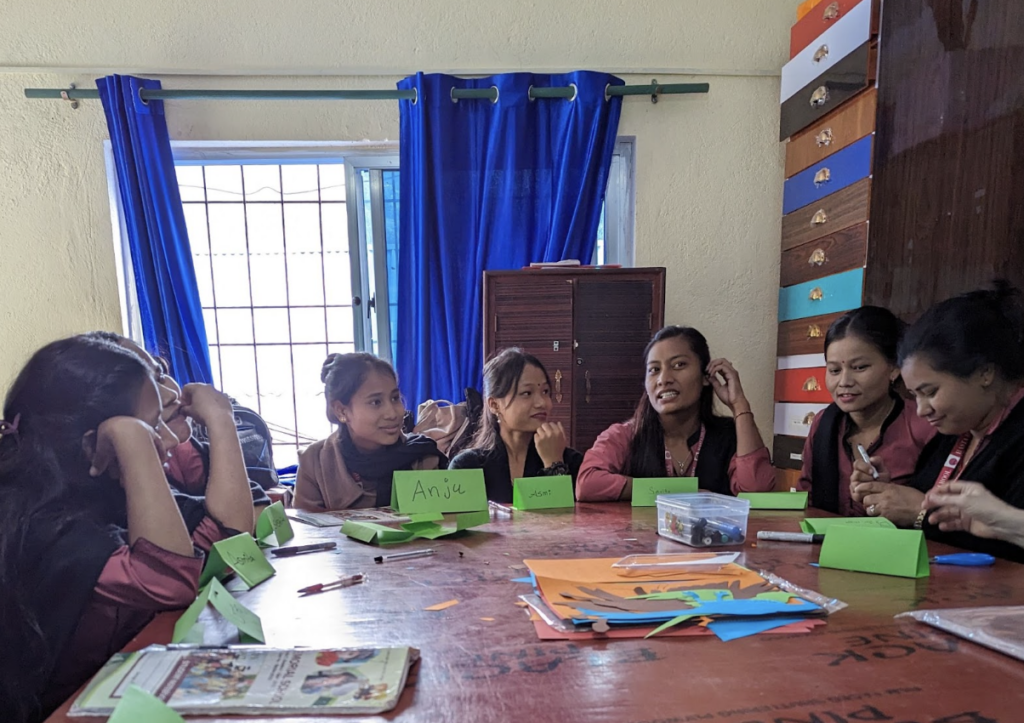
Hostel Girls
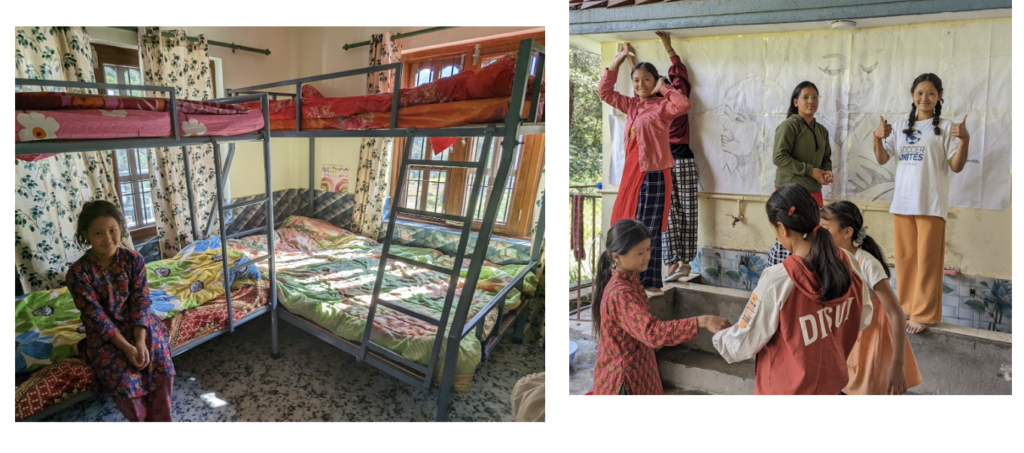
Remedial Education for Adults
Sustainability Through Community Agriculture
Challenges
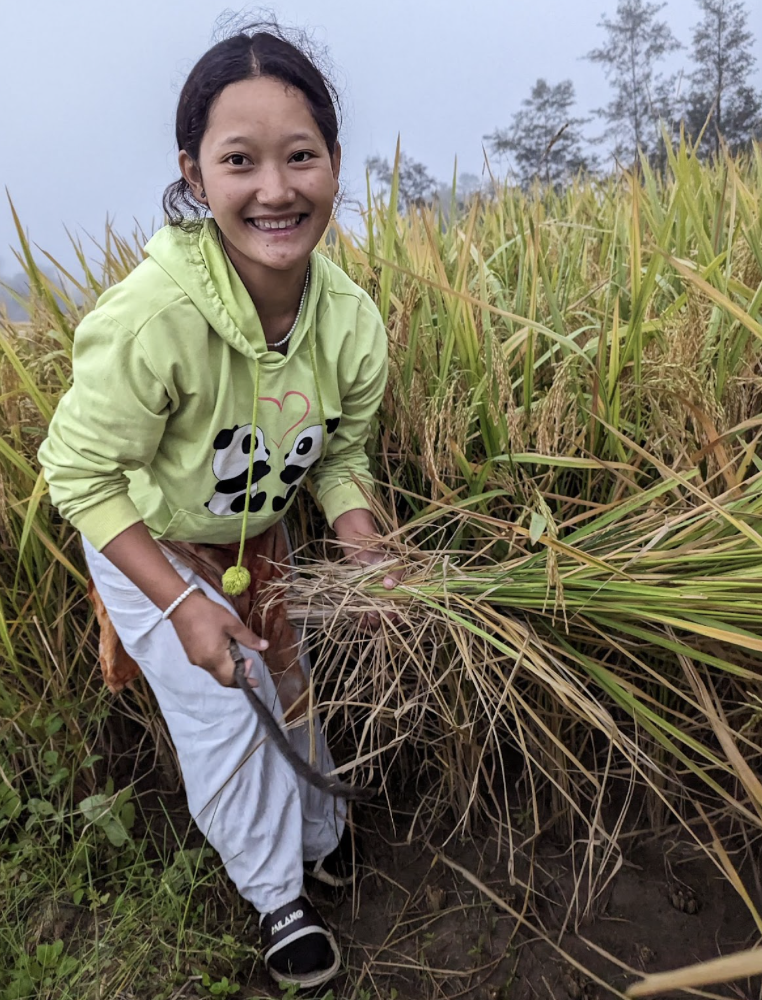
Future Plans
A Personal Message from Anjali
I am grateful for the wonderful people I have in my life. I am blessed to have such incredible partners who understand me in every situation and support me from their heart. They are not only my partners in work but they are the family and friends who keep me moving forward through every obstacle, and encourage me to continue the work, even in the most challenging times. I know if I didn’t have these wonderful friends and family, I would have never been able to come to this position in life. To have loving and caring partners means a lot in the success of any work.
